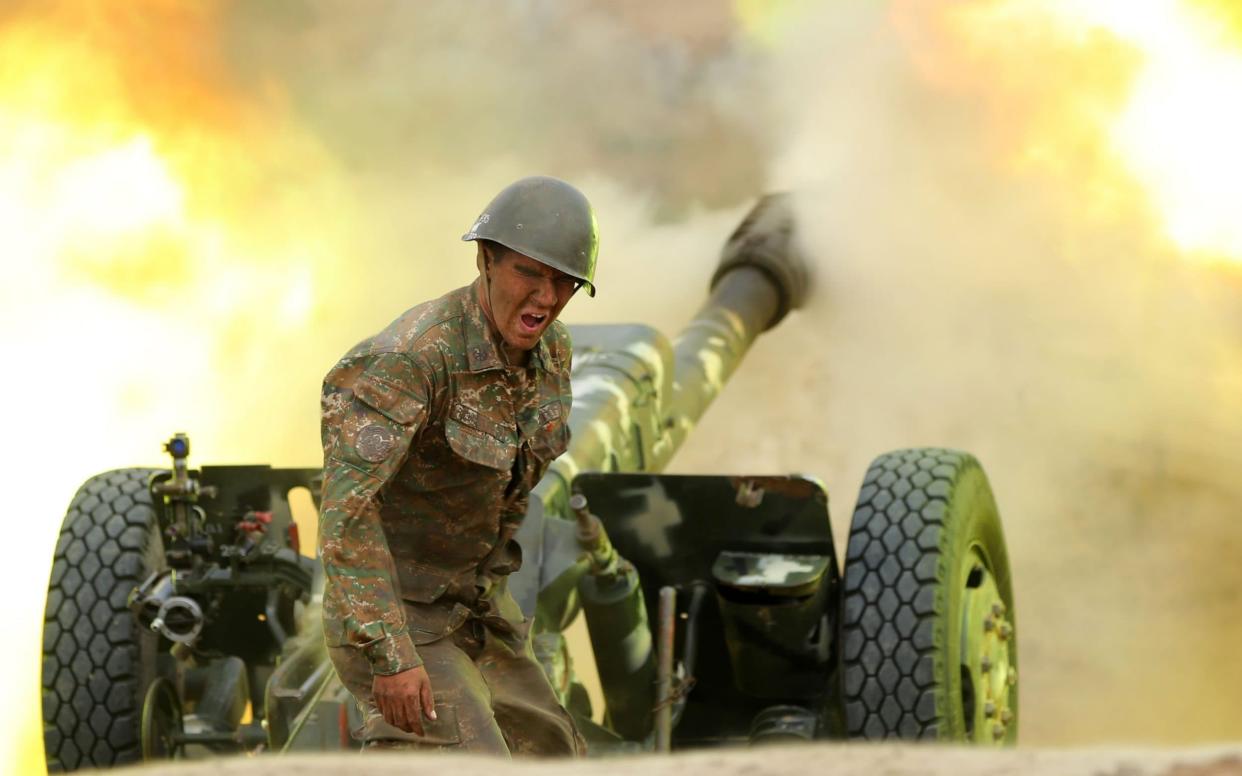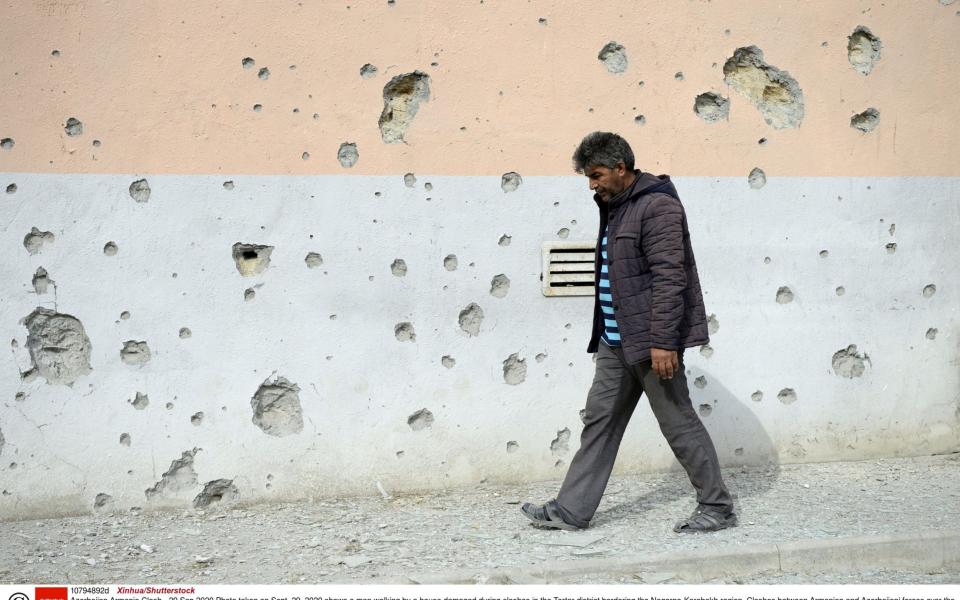Turkey raises stakes in Armenia-Azerbaijan conflict with promise to help retake disputed region

Turkey raised the spectre of full-blown war in the flashpoint Caucus region of Nagorno Karabakh on Tuesday after vowing to help its ally Azerbaijan seize the disputed territory back from Armenian control.
As fighting in the region raged for a third day, Turkey said it was “fully committed” to helping Azerbaijan take back its “occupied” lands, which Azeris were driven out of during the civil war of the early 1990s.
The bellicose statements - made by a spokesman for the Turkish president, Recep Tayyip Erdogan - will fuel fears that Azerbaijan intends a full-scale military incursion into Nagorno Karabakh.
Around 100 people have now died since fighting broke out on Sunday. Armenia claimed on Tuesday that a Turkish F-16 fighter jet had shot down one of its own warplanes, a claim denounced as “propaganda” by Azerbaijan.
Azeri bombardments were also reported to have killed a civilian in a village in the Armenian town of Vardenis, which lies well to the west of Nagorno Karabakh in Armenia proper.
The attack on Armenian sovereign soil was regarded as another potentially serious escalation in the hostilities. Local officials in Nagorno Karabakh now claim that 86 servicemen have so far died.

“This is a life-and-death war,” declared Arayik Harutyunyan, the president of the Nagorno-Karabakh region. Azerbaijan said that 12 Azeri civilians had been killed and 35 wounded so far.
Meanwhile, as other world powers appealed for calm, leaders in both Azerbaijan and Armenia exchanged heated insults, portraying each other as tyrants who were leading their nations into pointless conflict.
“If the international community is not capable of stopping Armenia's reckless dictator, then Azerbaijan will do it,” said Azerbaijan’s President Ilham Aliev in televised remarks aimed at Armenia's president, Armen Sarkissian.
He later rejected any talks with his counterpart. Armenia's prime minister, Nikol Pashinyan, in turn accused Mr Aliev of running a dictatorship which ran on “Armenophobia”.
A Tweet from Armenia's foreign ministry declared: “This genocidal Turkish-Azerbaijani alliance is serious threat to the region.”
The UN Security Council was scheduled to meet Tuesday for emergency talks to defuse the conflict between the two ex-Soviet republics.
Diplomats fear a repeat of the bloodshed that took place when Nagarno Karabakh broke away from Azerbaijan in the early 1990s, when around 30,000 people died.
While the conflict has largely “frozen” since, many analysts fear that oil-rich Azerbaijan - which now has drone weaponry capable of knocking out the Armenian tank units that defend Nagorno Karabakh's mountainous terrain - may now be tempted to take it back with Turkish backing.
Both Armenia and Azerbaijan have long range missiles that are capable of hitting each other’s major cities. Russia has troops based in Armenia and has signed a Nato-style style treaty to defend it from outside attack.
However, it also maintains good relations with Azerbaijan and would be reluctant to see the conflict escalate, especially if it led to Turkey gaining a greater regional foothold.
The Kremlin urged Turkey and the warring sides to pursue “a peaceful settlement of this conflict,” while the US Secretary of State, Mike Pompeo, called for negotiations “as quickly as possible”.
France, Russia and the United States have mediated peace efforts in Nagorno-Karabakh under the so-called “Minsk Group”, but the last big push for a peace deal collapsed in 2010.
On Tuesday, Turkish security sources also claimed that Armenia had hired Syrian Kurdish fighters as mercenaries to defend Nagorno Karabakh. Armenia has likewise accused Turkey of hiring Syrian jihadists to fight on the Azeri side.

